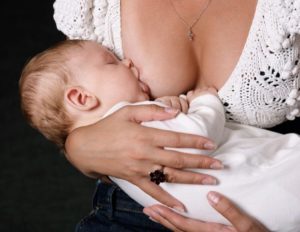5 things All Breastfeeding Parents Should Know.
The transition into parenthood is full of decisions. How are we going to feed our baby may (or may not) seem overwhelming and even out of your control. Advice comes flying from every angle and it's often hard to tell what is good, safe, relevant or ridiculous. I am passionate about breastfeeding and probably biased towards it, but reality is exclusive breastfeeding is not realistic for every family. My hope is that every family who desires to breastfeed their baby, in any capacity, has access to the support needed to fulfill their goal. Knowledge is a big factor in achieving a goal, and breastfeeding is no different.
These are 5 things I think all breastfeeding parents should know.
1. Low Milk Supply: This is one of the most common breastfeeding concerns experienced by nursing parents - understandable as there is no external gauge to tell you what your individual storage capacity is. Ideally after your supply regulates, your breasts will soften and find a comfortable balance even when full. In the beginning milk supply is driven by the hormones flooding your system after delivery (specifically of the placenta). After a few days/weeks, milk supply shifts to being controlled by frequent and effective emptying of the breast. This means, the more your breasts are emptied, the more milk you will make. Ideally we want the baby to breast (or hand expressing or pumping) 8 times in a 24 hour period to ensure optimal supply.
2. The 3 hour feeding timeline: I expected my babies to nurse every 3 hours. They never went that long. 3 hours is a guideline of the longest we want a baby to go in between feeds. Reality is, especially for the real newbies, they will want to feed more frequently than that (like every 1-2 hours) and that’s TOTALLY NORMAL! Tiny tummies need frequent filling. Breastmilk is designed to be easily digested by immature tummies and, as I said above, frequent emptying is essential for building supply.
3. When to feed the baby: In the early days, pretty much if the baby is awake they probably want to feed. Early feeding cues for new babes are being awake, stretching and moving, putting hands to mouth and rooting. When babe is getting to the point of fussing and crying they will be harder to get latched on. Life happens and it's not always possible to get your babe on at those early cues and they start crying. Trying to settle your baby first with skin-to-skin contact and some cuddles or bouncing might help with getting a better latch. When babe is crying their tongue lifts up to the roof of their mouth making it almost impossible for the breast to get in the right spot. When in doubt, offer the breast. Breastfed babies won’t overfeed themselves, so if they are calm and awake and don’t want to latch, they probably aren’t hungry.
4. Are they getting enough?: Maybe the most common question I hear. Just like supply, your baby doesn’t have an external gauge showing how much they just drank. The best way to know baby is getting enough at the breast is WEIGHT GAIN! Other good indicators are changes in stool color (moving from dark to light, towards a mustardy, seedy yellow), frequent wet/soiled diapers and babe is coming off the breast content and awake or in a relaxed sleep (not clenched and tight). These last ones aren't as reliable indicators but good signs things are going in the right direction. Conversely, frequent feedings are not necessarily a sign they aren't getting enough either.
5. Nipple Pain: While it is a common experience for nursing parents it is not necessarily normal. After the first week or so, nipple pain lasting longer than about 30 seconds should be investigated. Similarly nipple trauma (cracks, blisters, infection) should be looked into as it can be a sign that something needs a tweak. This could be as simple as modifying your nursing positions or adjusting baby’s latch! Pain higher up in the breast could be associated with milk let down, clogged ducts or mastitis. These pains should not be ignored and don’t need to be powered through.
Breastfeeding is the biological norm for humans. Meaning - we were designed to provide nourishment and immunity innately to our young, through a food specifically designed to their continually changing and individually unique needs. However, biological norm certainly does not mean that it is an easy or uncomplicated task. The pressures from society and our increasing separation from “our village” have made the task of feeding, and motherhood, incredibly difficult. We don’t always have a knowledgeable Grandmother counselling us on the ins and outs of this transition and it can feel overwhelming and isolating. Support is out there whether you chose to exclusively breast feed, bottle feed or some combination of it all. Feeding your baby should be nourishing for both of you and no one way is best for everyone. ~ Hilary RMT & Lactation Consultant.

